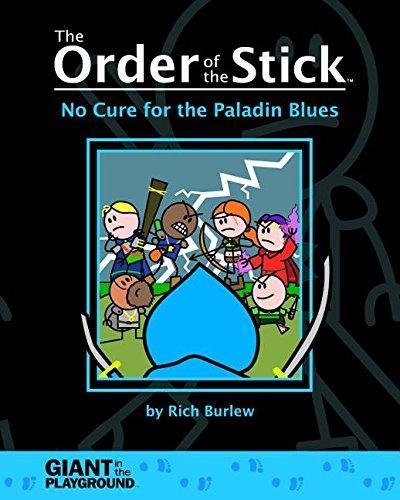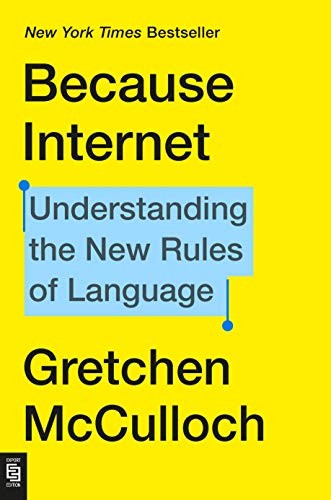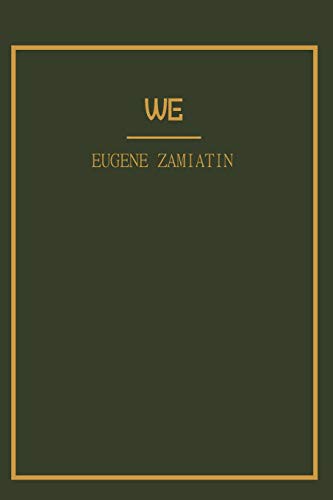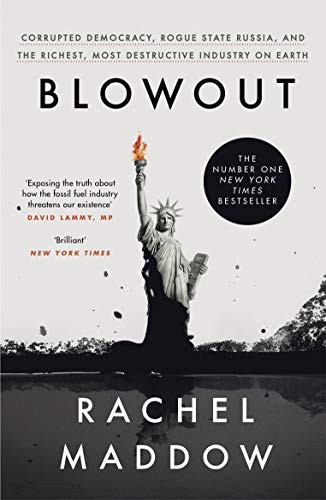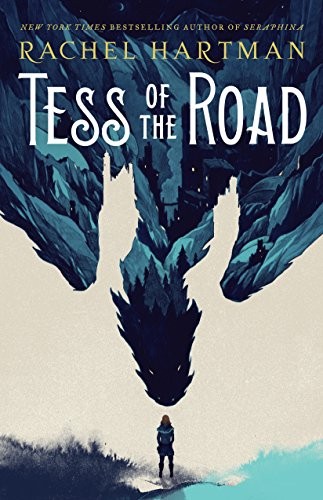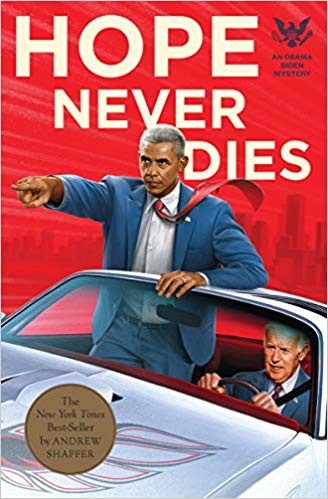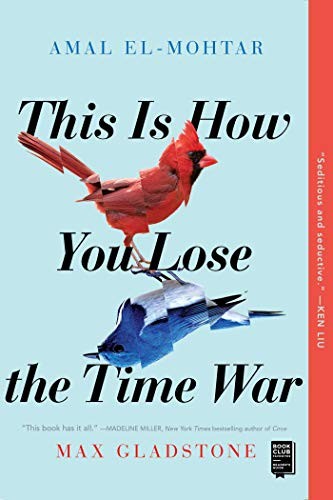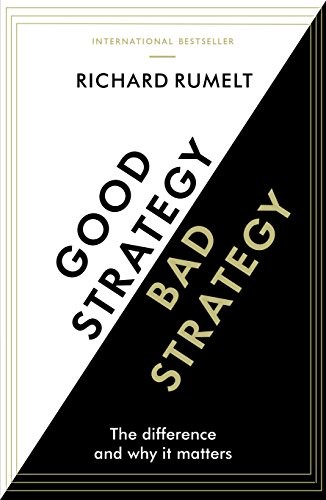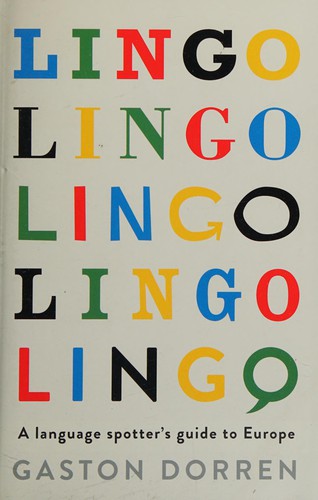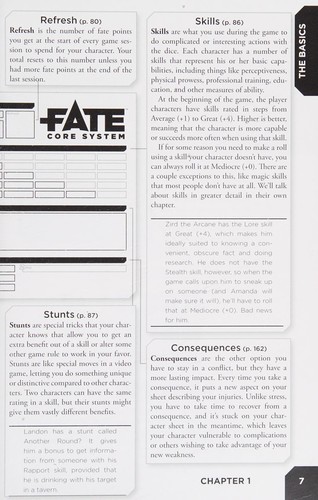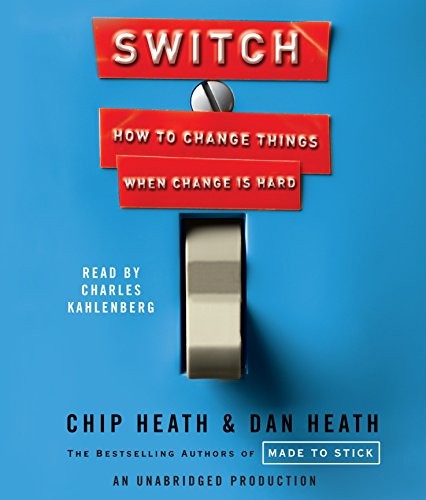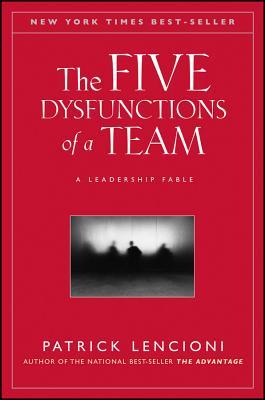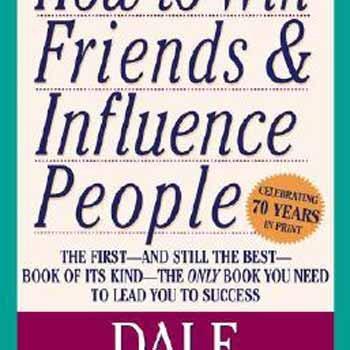I was enjoying this one, but got distracted by other things, and will probably not go back to it at this point. I liked it though.
Reviews and Comments
This link opens in a pop-up window
dozens reviewed Because Internet by Gretchen McCulloch
dozens reviewed We Yevgeny Zamyatin by Yevgeny Zamyatin
Review of 'We Yevgeny Zamyatin' on 'Goodreads'
I didn't like this book. I don't like the characters, and I don't like the conversation style of stopping sentences in the middle of the....
Also it was for a bookclub that I'm not a part of any more, so I don't feel any need to see this one through.
I didn't like this book. I don't like the characters, and I don't like the conversation style of stopping sentences in the middle of the....
Also it was for a bookclub that I'm not a part of any more, so I don't feel any need to see this one through.
dozens reviewed Blowout by Rachel Maddow
dozens reviewed Storm King's thunder by Wizards of the Coast, Inc
A detailed scenario for an adventure for players of "Dungeons & Dragons" involving the Storm …
Review of "Storm King's thunder" on 'Goodreads'
4 stars
Gonna start running this game next week!
A very epic story. Love how huge and sprawling this is, and I love giants vs. dragons.
I'm having a hard time seeing how the middle part connects the beginning and the ending. But I have time to figure that out!
Gonna start running this game next week!
A very epic story. Love how huge and sprawling this is, and I love giants vs. dragons.
I'm having a hard time seeing how the middle part connects the beginning and the ending. But I have time to figure that out!
dozens reviewed Tess of the Road by Rachel Hartman
Review of 'Tess of the Road' on 'Goodreads'
5 stars
Who recommended it to me ##
tomasino posted a pretty stellar review recently, and I generally am into stuff that tomasino is into, so I thought I'd give it a spin!
## How to read this book ##
In one sitting, turning the pages as fast as possible.
## What I liked ##
So much. Too much to list here.
Look, let's make a story golem: if the the meat of a story is its characters, and the story itself, the plot; then the bones of the story are all the things that support the meat, that allow the plot to progress, the whole world setting. In this book, that's the politics--each nation with rich language, ways of dressing, etc--the pantheon of saints and deities, the dragons and the quigutl, the dragon-kin. Especially the quigutl: so alien and relatable, their language and culture permeating throughout the whole story.
This book …
tomasino posted a pretty stellar review recently, and I generally am into stuff that tomasino is into, so I thought I'd give it a spin!
## How to read this book ##
In one sitting, turning the pages as fast as possible.
## What I liked ##
So much. Too much to list here.
Look, let's make a story golem: if the the meat of a story is its characters, and the story itself, the plot; then the bones of the story are all the things that support the meat, that allow the plot to progress, the whole world setting. In this book, that's the politics--each nation with rich language, ways of dressing, etc--the pantheon of saints and deities, the dragons and the quigutl, the dragon-kin. Especially the quigutl: so alien and relatable, their language and culture permeating throughout the whole story.
This book has great bones.
Also, the incredible amount of fluidity of gender, self, and identity: the way quigutl--Pathka, specifically--change genders. Tess adopts several personas in her travels on the road, all of them male. She is herself reborn on the Road, just as Anathuthia presumably will be reborn.
I already checked out the two Seraphina books and hope to dive into them soon.
## What I didn't like ##
At first I really hated Tess's bleak, oppressive home life and her bleak, abusive family. She had to have something to flee from though, I guess. It's an important part of who she is, and an important part of why she had to go on her journey.
dozens reviewed Hope never dies by Andrew Shaffer (An Obama Biden mystery)
Review of 'Hope never dies' on 'Goodreads'
DNF
This has been languishing on "currently reading" for over a year, and I don't have the appetite for it any longer. I'm burnt out on Biden at the moment.
DNF
This has been languishing on "currently reading" for over a year, and I don't have the appetite for it any longer. I'm burnt out on Biden at the moment.
dozens reviewed This Is How You Lose the Time War by Max Gladstone
Review of 'This Is How You Lose the Time War' on 'Goodreads'
4 stars
Summary ##
A brief and beautiful, poetic love story. Part Romeo and Juliet, part Spy vs. Spy, part time-travel espionage story.
## Why I picked it up ##
I don't remember. It was probably on some Best of 2019 list, and also I'm likely to have picked it up based on the title and cover alone.
## Who I'd recommend it to ##
People who like pretty things, but only if you're okay with there not being much plot. It's 98% just having love letters read to you, and 2% sci-fi time war.
## How to read this book ##
Get ready to read love letters.
## What I liked ##
It was pretty and poetic. For the setting and plot to have been so much in the background, they were somehow also extremely compelling. I'd love to read the sci-fi action companion novel set in this world.
## What …
A brief and beautiful, poetic love story. Part Romeo and Juliet, part Spy vs. Spy, part time-travel espionage story.
## Why I picked it up ##
I don't remember. It was probably on some Best of 2019 list, and also I'm likely to have picked it up based on the title and cover alone.
## Who I'd recommend it to ##
People who like pretty things, but only if you're okay with there not being much plot. It's 98% just having love letters read to you, and 2% sci-fi time war.
## How to read this book ##
Get ready to read love letters.
## What I liked ##
It was pretty and poetic. For the setting and plot to have been so much in the background, they were somehow also extremely compelling. I'd love to read the sci-fi action companion novel set in this world.
## What I didn't like ##
I rolled my eyes so hard when I discovered that the main characters are actually named Red and Blue because it made me think of those old Rooster Teeth "Red vs. Blue" videos (which are apparently still being made!) But I quickly got over it.
I had to make a choice not to question how sudden and improbable the romance happened. It was a conscious choice to just go with it and enjoy the story.
## What was interesting / useful ##
I don't know if this is really supposed to be any kind of allegory or anti-war story, but I don't know whether either Red or Blue ever really believed in their cause, or whether they were just following marching orders from the fat cats back home because they didn't know anything else of life. They are both immediately willing to betray their respective causes after finding something better to believe in and to live for (love, and being loved).
Every war is a proxy war.
dozens reviewed Good Strategy/Bad Strategy by Richard Rumelt
Review of 'Good Strategy/Bad Strategy' on 'Goodreads'
3 stars
Summary ##
Accidental DNF! Apparently the download silently failed, and I didn't know it. So my audiobook cut out unceremoniously ended at chapter 8 of 13, which means I only got about 60% through it.
Back on hold for it at the library.
## Why I picked it up ##
Another one of those books that has been on my to-read list for a long time, and which has been recommended by tons of people.
Most recently saw it again in Thinking Fast and Slow.
## What I want to remember ##
- Strategy is 1) a diagnosis, 2) a guiding policy, and 3) coherent actions.
- Strategy is not: slogans. Financial forecasts or projections.
Accidental DNF! Apparently the download silently failed, and I didn't know it. So my audiobook cut out unceremoniously ended at chapter 8 of 13, which means I only got about 60% through it.
Back on hold for it at the library.
## Why I picked it up ##
Another one of those books that has been on my to-read list for a long time, and which has been recommended by tons of people.
Most recently saw it again in Thinking Fast and Slow.
## What I want to remember ##
- Strategy is 1) a diagnosis, 2) a guiding policy, and 3) coherent actions.
- Strategy is not: slogans. Financial forecasts or projections.
dozens reviewed An Elegant Puzzle by Will Larson
Review of 'An Elegant Puzzle' on 'Goodreads'
3 stars
## Summary ##
Encyclopedic breadth of content, diving deeply into nothing.
## Why I picked it up ##
My bookclub wanted to read it.
## What I liked ##
Holy moly this is beautiful book. The binding, the print, the everything. I haven't been this much in love with the physical form of a book since... hmmm, since I found that copy of Moby Dick with the leather binding and the gilded edges.
## What I didn't like ##
One of those books that is a printed out series of blog posts. You can literally find the full text of the book online by browsing through the author's site.
This book does better at this than most: the blog posts are coherent and easily organized into groups and chapters. But I can't help but wonder whether the book's lack of depth comes directly from this method of book writing.
## Summary ##
Encyclopedic breadth of content, diving deeply into nothing.
## Why I picked it up ##
My bookclub wanted to read it.
## What I liked ##
Holy moly this is beautiful book. The binding, the print, the everything. I haven't been this much in love with the physical form of a book since... hmmm, since I found that copy of Moby Dick with the leather binding and the gilded edges.
## What I didn't like ##
One of those books that is a printed out series of blog posts. You can literally find the full text of the book online by browsing through the author's site.
This book does better at this than most: the blog posts are coherent and easily organized into groups and chapters. But I can't help but wonder whether the book's lack of depth comes directly from this method of book writing.
dozens reviewed Fate: core system by Leonard Balsera
Review of 'Fate' on 'Goodreads'
4 stars
Who recommended it to me ##
Tomasino passively recommended it to me with their glowing goodreads review. I'm usually into the same sort of thing that they are, so I decided to give it a look-see.
## Who I'd recommend it to ##
D&D fans who want to try more story telling and fewer class restrictions.
## Summary ##
Fate is a system for collaborative story telling with a central, unifying mechanic (aspects).
This is in contrast to D&D (the only other ttrpg I've seriously played) in at least two ways:
1. Collaborative character creation and campaign creation
Although the "adversarial DM" cliche exists for a reason, the best D&D games are also collaborative to some extent or another. But not to the extent recommended by this system.
2. Characters without classes
Fate's character creation process was a revelation.
Fate is a story telling system with a unifying "aspects" mechanic. …
Tomasino passively recommended it to me with their glowing goodreads review. I'm usually into the same sort of thing that they are, so I decided to give it a look-see.
## Who I'd recommend it to ##
D&D fans who want to try more story telling and fewer class restrictions.
## Summary ##
Fate is a system for collaborative story telling with a central, unifying mechanic (aspects).
This is in contrast to D&D (the only other ttrpg I've seriously played) in at least two ways:
1. Collaborative character creation and campaign creation
Although the "adversarial DM" cliche exists for a reason, the best D&D games are also collaborative to some extent or another. But not to the extent recommended by this system.
2. Characters without classes
Fate's character creation process was a revelation.
Fate is a story telling system with a unifying "aspects" mechanic. And D&D, in contrast, is a class system with a crunchy rule set.
In D&D, roleplayers and powergamers alike, though motivated differently, often arrive at this place where they're trying to manipulate and coerce some kind of combination of classes into a satisfying character. Either way, you're working with or against the class system.
In Fate, the roleplayer would just specify the precise aspects they want, and then start to enjoy their custom "class." The powergamer meanwhile, would either stop worrying and learn to love the storytelling, or leave for another, crunchier system.
## What I liked ##
Aspects are such a great mechanic. It's very similar to Risus' mechanic of "cliches." So much so that I had to look up and see who was published first. (Risus, by a decade!)
Also, as far as rulebooks go, this one was extremely well written! Lots of inline references, lots of examples. Call outs for "veterans" of older systems. No contradictions that I could discern. Basically the opposite of a Shadowrun rulebook.
dozens reviewed Switch by Chip Heath
Review of 'Switch' on 'Goodreads'
3 stars
Summary ##
It's about how to ride an elephant.
## Why I picked it up ##
I don't remember ordering it, but it popped up in my library book holds, so why not!
## Who I'd recommend it to ##
Somebody who hasn't read anything on this topic before. If you've read Nudge, Habit, or Influence, then there's nothing new here for you. Except for a metaphor about an elephant.
In fact, I think I recommend you don't read it, and instead read the grand-daddy of all psychology / behavioral books, Thinking Fast & Slow. I haven't really enjoyed any books of this sort since reading that one, so much so did it set the gold standard.
## What I liked ##
It's a simple metaphor and framework that I probably won't be able to help but think about from time to time.
## What I …
It's about how to ride an elephant.
## Why I picked it up ##
I don't remember ordering it, but it popped up in my library book holds, so why not!
## Who I'd recommend it to ##
Somebody who hasn't read anything on this topic before. If you've read Nudge, Habit, or Influence, then there's nothing new here for you. Except for a metaphor about an elephant.
In fact, I think I recommend you don't read it, and instead read the grand-daddy of all psychology / behavioral books, Thinking Fast & Slow. I haven't really enjoyed any books of this sort since reading that one, so much so did it set the gold standard.
## What I liked ##
It's a simple metaphor and framework that I probably won't be able to help but think about from time to time.
## What I didn't like ##
I read this right on the heels of How To Win Friends and Influence People, which I disliked so much that it sometimes sullied this book for me too because I at times felt it focused too much on manipulating people to change their behavior.
## What I want to remember ##
What made this content useful to me was thinking about it in terms of how it might help me deliver feedback during 1:1s. In that regard, there was a lot of practical advice like seek out the bright spots, shrink the change, small wins, growth mindset, etc. The Miracle Question and the Expectation Question are good tools that were introduced to me in The Coaching Habit.
dozens reviewed The Five Dysfunctions of a Team by Patrick Lencioni
Review of 'The Five Dysfunctions of a Team' on 'Goodreads'
1 star
Summary ##
How to turn your failing business around in three short off-site leadership retreats! There's a stuffy British guy!
## Why I picked it up ##
This is a title that has been on my To Read list for a long time now. It's just been recommended to me too many times to not take a crack at it. Especially once I realized that it's so short!
## How to read this book ##
Skip to the end. Start reading at "The model: An overview of the model".
Go back and skim the narrative part of the book if you want to see an anecdote of the model in action.
## Who I'd recommend it to ##
Somebody with three hours to kill and nothing better to do.
## What I didn't like ##
A little fluffy. Seems like most of the practical advice boiled down to stuff like, …
How to turn your failing business around in three short off-site leadership retreats! There's a stuffy British guy!
## Why I picked it up ##
This is a title that has been on my To Read list for a long time now. It's just been recommended to me too many times to not take a crack at it. Especially once I realized that it's so short!
## How to read this book ##
Skip to the end. Start reading at "The model: An overview of the model".
Go back and skim the narrative part of the book if you want to see an anecdote of the model in action.
## Who I'd recommend it to ##
Somebody with three hours to kill and nothing better to do.
## What I didn't like ##
A little fluffy. Seems like most of the practical advice boiled down to stuff like, Ask your team about their childhood, and have them take a personality test.
I didn't like the whole story, which is unfortunate, because that was like 75% of the book. The story wasn't interesting, and it wasn't instructive. Anybody can make up a story to support their pet theory. I don't remember hearing one thing in the book about when / where / why / how the author devised this model, or if they've seen it successfully applied anywhere.
I am 100% not a person who believes that there isn't truth or that there aren't lessons in fiction. But, this isn't supposed to BE a work of fiction. I don't know. Not what I signed up for.
My complaint is that there isn't any supporting evidence or argument for what the author is putting out there. And the appearance of offering up pure fiction as evidence, as though it is science, feels like falsehood, like lying. I think that's the emotional response I'm having here. It just feels disingenuous.
## What I want to remember ##
The basic formula for teamwork seems to ring true:
trust -> debate/conflict -> commitment -> accountability -> outcomes
Trust allows for healthy conflict, which allows for commitment to a thoroughly debated decision, to which the whole team holds each other accountable, which focuses the attention of the whole team on the outcomes of the decision.
Review of 'How to Win Friends & Influence People' on 'Goodreads'
1 star
Summary ##
The prototype self help book / click bait article.
Ways to manipulate people and win your way: handle them, make them like you, win them to your way of thinking, and change them.
## Why I picked it up ##
It's a classic. It's so classic it's a meme. It's been on my to-read list probably since before I was born.
## Who recommended it to me ##
Society.
## Who I'd recommend it to ##
The historically curious.
## What I liked ##
I liked the very first part, because it was about ways to conduct yourself: don't complain, don't criticize, recognize the good in people, appreciate their point of view.
## What I didn't like ##
Each subsequent chapter and part after that grew more and more to be about ways to manipulate others, and consequently less and less enjoyable to read about. I think there …
The prototype self help book / click bait article.
Ways to manipulate people and win your way: handle them, make them like you, win them to your way of thinking, and change them.
## Why I picked it up ##
It's a classic. It's so classic it's a meme. It's been on my to-read list probably since before I was born.
## Who recommended it to me ##
Society.
## Who I'd recommend it to ##
The historically curious.
## What I liked ##
I liked the very first part, because it was about ways to conduct yourself: don't complain, don't criticize, recognize the good in people, appreciate their point of view.
## What I didn't like ##
Each subsequent chapter and part after that grew more and more to be about ways to manipulate others, and consequently less and less enjoyable to read about. I think there was an accumulative effect of "ickiness" that I felt after reading chapter after chapter of little ways to treat people as resources to tap, obstacles to surmount.
Also the part when he congratulated Rockefeller's address to the coal mine strikers in Colorado? Amazingly tone deaf, insensitive, and inappropriate to leave out the other primary way he won the strikers over to his side: convince the US National Guard to wholesale murder entire families of innocents.
Reference: en.wikipedia.org/wiki/Ludlow_Massacre
After that point, the rest of the book felt really tasteless to me, and couldn't quite escape the feeling that this was a book by, about, and for the Carnegies, Rockellers, Roosevelts, and Schwabs of the world: rich successful businessmen in the 1910s and 1920s.
Nitpick: this version of the audiobook had this constant trumpeting fanfare at odd parts of the recording. I wonder if it wasn't originally to signify the end of the side of a cassette tape to urge the listener to turn the tape over.
## What I want to remember ##
- Don't criticize, don't argue

